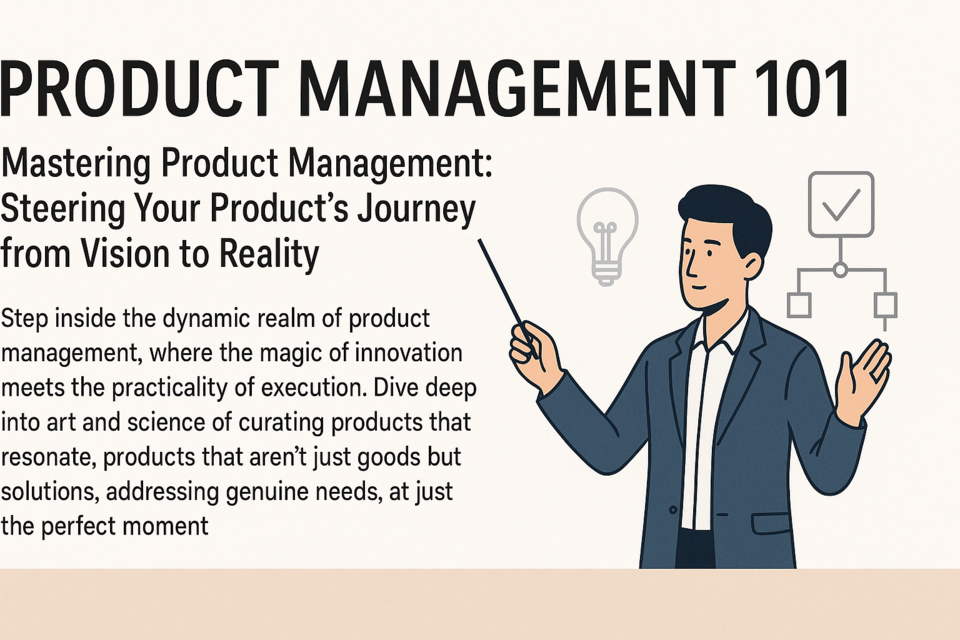INTRODUCTION
Over the last decade or so, the expression to "work virtually" has been taken to define someone who simply works from home, but it means so much more than that.
At first, you as an aspiring virtual assistant may find it hard to get your mind around the concept that you can get your business really rolling, especially if you have been working in offices for years. Let us face it: It can be difficult at first to see how you will be able to connect with a client in another state, let alone another country, in order to provide a service; but you can.
Defining the Virtual Assistant
Of course, that would not do the role justice, nor would it help you or anyone else to understand the much broader role that a VA plays. That role is definitely one that is constantly growing in the current business environment.
We are not referring just to someone who works for someone else over the Internet. In some cases, the VA becomes more like a partner in the business by providing support in a wide number of areas. VAs are individual business operators who work from either local or remote locations, possibly their home or an independent office.
In reality, a VA can operate through an agency, as a temporary worker without an agency, or as that person who is almost a partner in the client's business.
Is a temporary worker without an agency a bad thing ? No, you make more money that way. Some VAs prefer to keep their businesses simple, restricting themselves to just one or two tasks. That way, they can reap the rewards of extra income and some freedom without the pressures of a full-time business.
Then there are those VAs that thrive on a challenge of dealing with multiple tasks. For instance, some are prepared to take over the running of a business, doing virtually everything to keep the wheels turning while a client is away overseas. Some VAs run a few clients' businesses while they are either traveling on business or on vacation with their families, sometimes being booked for several months of the year by one client.
How Do I Start?
Do you have a strong desire to achieve; i.e., are you motivated?
Are you willing to take risks?
Do you possess self-confidence?
Can you handle a number of tasks at one time?
Can you accept challenges?
Are you a self-starter?
Are you innovative?
Are you adaptable to rapid changes?
Do you have good analytical skills?
Can you foresee the requirements of others?
Add two crucial ones if you are to build a successful VA business:
~ Can you learn from your past mistakes?
~ Can you work through problems and not dwell or get hung up on them?
Then, and only then, go on to analyze your current and previous work experience. Jot everything down, no matter how insignificant it might seem to you. For instance, can you type quickly and accurately? Are you a natural at organizing events? Are you a whiz at design, including such items as flyers, brochures, and Web sites? Are you a good writer, turning out such things as reports, articles, submissions, and letters? How are you with research? Some VAs are a whiz at digging up information, particularly when others just cannot find it.
Does It Matter Where I Live?
In many cases, thanks to computer technology, it does not matter where the VA lives in relation to the employer.
VAs work either from home or an independent office, sometimes for a local business and sometimes from a remote location, including even the other side of the country or across the world from their clients.
This writer has VA colleagues who may live as far away from the United States as Australia but whose main clients are residents in either the USA or Europe. Some do bookkeeping, some appointment setting, some writing or Web design. Some do all of those jobs and more.
How do they communicate with their clients? It is simple enough: Sometimes they make contact via e-mail, sometimes by fax, sometimes by other online means, such as Messenger services or the wonderful Skype, and other times by ordinary phone.
What Skills Are Needed?
That depends to some degree on the areas you intend to specialize in or whether you are going to start out as a generalist until you build up your client base and see where that might lead you.
The general suggestion for people starting out as VAs who wish to develop their businesses quickly is to decide on a target market, initially focusing your marketing skills in that particular area. When you develop your initial market in a specialized niche, you will find your reputation spreads quickly.
Some suggestions for specialties include medical, legal, or business transcription, r�sum� writing, desktop publishing, preparation of manuscripts or articles, tutoring of various sorts, report writing, and so on.
After analyzing the skills you currently have, ask yourself how your skills rate on a scale of 1 to 10; i.e., poor, average, good, or excellent.
You are the only person who can really say whether you need to brush up on certain skills. A general rule would be that about 50 percent of people thinking of starting a VA business have enough basic skills to get started, 30 percent already possess excellent skills in several specialized areas, and the remaining 20 percent need to refresh everything before they start.
What you definitely, absolutely, and without any doubt require is a knowledge of technology and a readiness to learn and keep up with technological developments that make communicating with clients and completing work achievable.
Will I need to join an agency or association? Do I need accreditation or certification?
First, there is no need to join an agency or association to work as a VA, although it may help to get things rolling and bring business in until you build up a client base.
Second, there are no set requirements for someone who wants to become a virtual assistant, though there are a number of organizations that both train and certify people as VAs. It is not necessary to either enroll or join one to become a virtual assistant. Naturally, extra training or accreditation would never go astray, either.
3. IAVOA, or The International Association of Virtual Office Assistants: This organization's purpose is to promote the use of VAs all over the world and provide those businesses that want to use the services of a VA with the best possible support available.
Agree on the Processes
You should always have a formal contract before proceeding with a project. If you do not know how to draft one, just look online. A number of VA sites provide drafts of helpful information.
Working relationships are forged on much more than a contract document, though. Here are a few tips on how to create and maintain a successful, creative, and productive working relationship with your clients:
Be sure to obtain explicit instructions and deadlines from your clients.
Get your clients to brief you on their likes and dislikes in regard to their work methods; i.e., the style in which they prefer things to be worded, their needs in regard to response times, and how they like their work to be structured.
Agree before you start on workflow processes; for example, how you will communicate and share information and how you will ensure certain things are not either missed or handled by both parties, thereby wasting time.
Make sure that your clients are willing to let go of the tasks they pass onto you.
Sometimes, even though prospective clients may feel that having a VA would be a wonderful addition to their business, they are not initially prepared to devote the time to putting the necessary structures into place. It is your job as a VA to ensure that clients devote time in the initial stages of a relationship to ensure a smooth and effective operation.
Just Another Job, or Is the VA Really Self-employed?
Virtual assistants, or VAs as they are more frequently called, are definitely self-employed professionals.
They work from their own office, wherever that may be, utilizing the tools of modern technology and providing a diverse range of services. They can specialize in certain services, such as medical, legal, Web design, transcription, etc., or be generalists.
It is not unusual for most VAs to never meet their clients face to face. There are so many ways to get and keep in touch these days; you can choose the telephone, e-mail, instant messaging, remote personal computer access, fax, or postal and courier services.
A client is just as likely to find the ideal VA in another city, state, or even country as he or she is to find that perfect match in the local area.
UNDERSTANDING
Who Needs a VA?
Business owners are choosing to work with VAs in a number of different ways, including the following:
- to handle all their administrative needs;
- to handle administrative needs during specific peak periods;
- to shepherd specific and/or confidential projects.
Because of the present world economic situation, business owners are going to be looking for more and more value for the money than they have ever received in the past without sacrificing quality.
Of great advantage to any business requiring VA services is the fact that because VAs are self-employed, they rely on giving excellent customer service to help drive their businesses. It follows that a VA will display an equal or even greater sense of loyalty and dedication than most direct employees.
Outsourcing can allow clients and businesses to concentrate on the core of their business and not need to spend money and energy hiring employees. They come to quickly realize the advantages of not having to assume the responsibility and expense of taking care of employees.
The Advantages to You as a Virtual Assistant
The advantages to you of becoming a VA are many. Here are a few:
You are your own boss.
- You work from home or anywhere else you want in the world.
- You can make more money that you ever imagined you would in a normal office. Some would say that a VA's income is almost recession proof!
- You set your own schedule, including vacations and days off.
- You will be setting up in a business area that is booming because of the recession.
- You will not need to keep spending all that money on business outfits and shoes.
- You can use all those skills and talents you have honed over the years to build up your own home-based business.
- You can limit your work to that which you really enjoy doing.
You can choose to receive your instructions by the method you prefer. E-mail is recommended because it is unobtrusive and you then have the instructions in black and white, which greatly reduces the chance of misinterpretation. It is also very handy to be able to print something off and re-read it if you are so inclined.
You will not have to leave your home or office to attend to meetings, as these can easily be arranged by teleconference, saving everyone money and time.
You can even attend international conferences these days by Webinar, saving the costs of airfare and accommodations.
What Should I Charge?
There are many questions that pop into your head regarding what you are going to charge for your services, especially when you are just starting out. Do not rush into anything; give the matter some thought and research.
A lot of VAs start out feel slightly insecure, thinking maybe that they should not charge what an experienced VA is charging. Why not? You may have even more background experience than the others have through experiences other than in your VA business at this stage.
While it may be tempting to discount your prices and charge lower rates for a while, remember that you need to charge enough to make a profit and cover your overhead. You also need to value yourself and your work, if for no other reason than if you do not value yourself and your work, no one else is likely to, either.
You are providing a great service, so do not be afraid to charge accordingly. Clients will think more of you for doing so. An easy way to find out what your services might be worth is to research online what others are charging. As a rough guide, VAs today are typically charging between $25 to $75 per hour, depending on what services are offered.
These rates obviously leave you some leeway to decide what you will charge. Naturally, your skills play into any assessment. Keep in mind that some professions, such as legal, financial, or investment, are looking for VAs with certain specialized skills; therefore, they are prepared to pay more.
A common and somewhat mistaken strategy is to start at lower rates with the theory that you can raise them. Be warned: Once you have a rate, it is not easy to raise it, whether it be to new or old clients. However, it is not impossible, so do not think as you progress along, learning new skills and programs and improving, that you cannot raise your rates. You can. Just be wary of starting too low and trying to raise your rates too dramatically or too quickly.
The big no-no is to purposely place your rates below the competition in the hopes of capturing some clients. There is always going to be someone cheaper; and while clients are always looking closely at prices, they continue to also look at the quality of the work as well.
Focus on the quality of your services and the value you proudly provide to your clients while charging a fair rate. With time and patience, you will find plenty of clients prepared to pay a fair price for your excellent work.
























